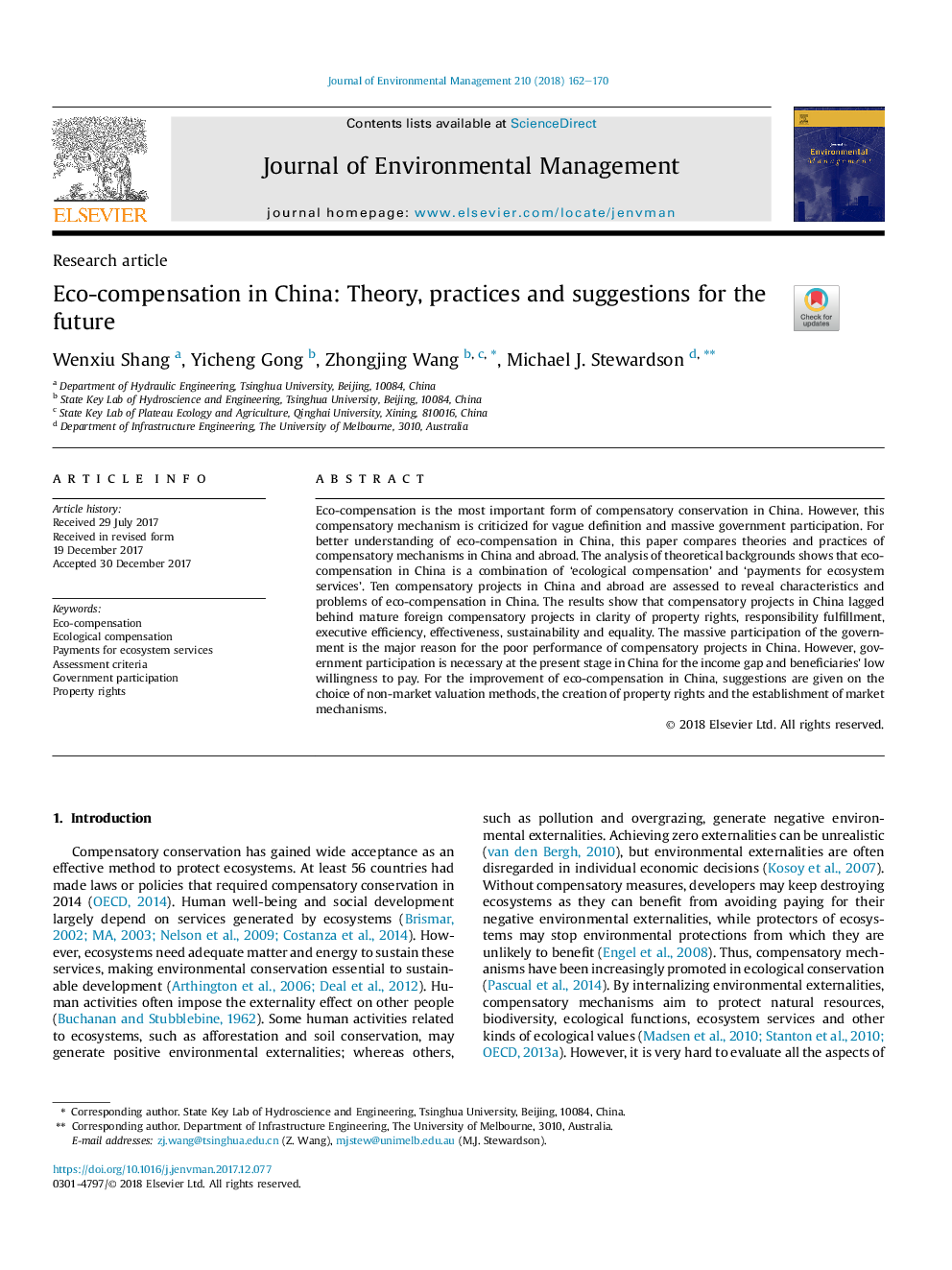ترجمه فارسی عنوان مقاله
جبران خسارت اقتصادی در چین: نظریه، شیوه و پیشنهادات برای آینده
عنوان انگلیسی
Eco-compensation in China: Theory, practices and suggestions for the future
| کد مقاله | سال انتشار | تعداد صفحات مقاله انگلیسی |
|---|---|---|
| 147895 | 2018 | 9 صفحه PDF |
منبع

Publisher : Elsevier - Science Direct (الزویر - ساینس دایرکت)
Journal : Journal of Environmental Management, Volume 210, 15 March 2018, Pages 162-170
ترجمه کلمات کلیدی
جبران خسارت زیست محیطی، جبران زیست محیطی، پرداخت برای خدمات اکوسیستم، معیارهای ارزیابی، مشارکت دولتی، حقوق مالکیت،
کلمات کلیدی انگلیسی
Eco-compensation; Ecological compensation; Payments for ecosystem services; Assessment criteria; Government participation; Property rights;

